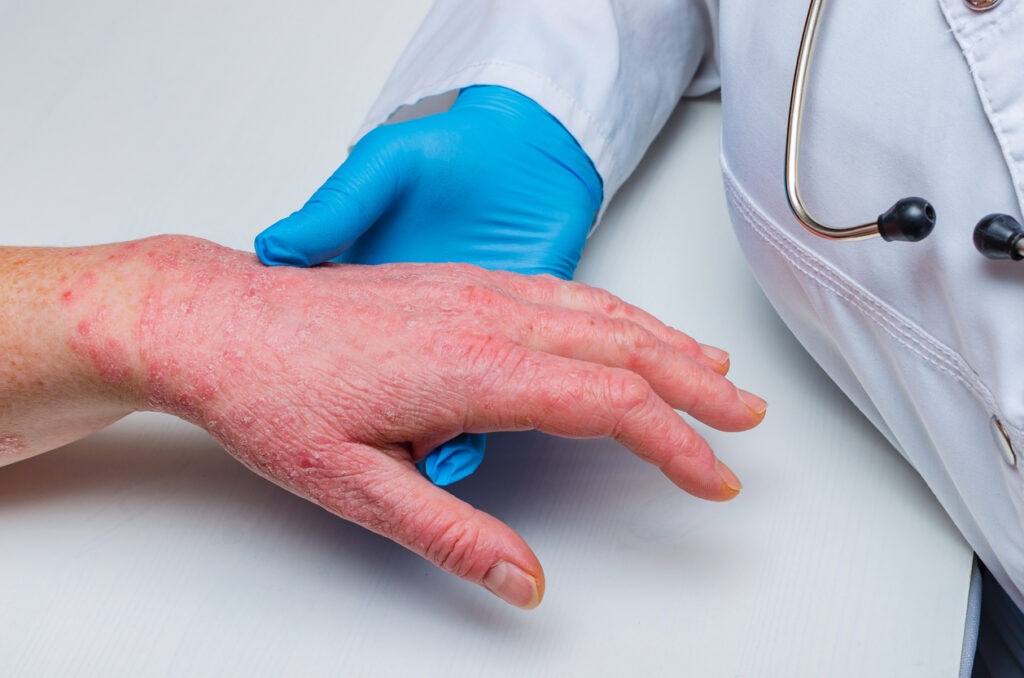Atopic dermatitis (AD) patients with moderate-to-severe hand involvement taking tralokinumab (Adbry, LEO Pharma) showed sustained improvements out to 32 weeks, according to topline results from the Phase 3b ADHAND trial.
ADHAND is a Phase 3b, interventional, adaptive, placebo-controlled clinical trial evaluating the efficacy and safety of tralokinumab 300mg administered every two weeks as a monotherapy compared with placebo in patients living with moderate-to-severe AD on the hands who are candidates for systemic therapy. After the first 16 weeks’ double-blinded treatment period, all patients received open-label, 300mg tralokinumab every two weeks for 16 weeks.
The trial met all key primary and secondary endpoints at Week 16 as well as all endpoints at Week 32, including efficacy on extent and severity of disease, itch, pain, sleep, and health-related quality of life and the safety and tolerability of continued tralokinumab treatment.
Detailed results of this Week 32 analysis will be submitted for scientific presentation and publication at a later date.
Positive 16-week Data Presented at ISAD 2025
Tralokinumab showed statistically significant improvement compared to placebo in all primary and key secondary endpoints such as Clear or Almost Clear skin, itch, and pain at Week 16 in ADHAND.
The data showed an early onset of effect observed from Week 2 in the primary endpoint. There was a statistically significant difference in the proportion of patients who achieved an Investigator’s Global Assessment for Atopic Hand Eczema (IGA-AHE) score of 0/1 – Clear or Almost Clear skin on the hands at Week 16 (40.0% of patients (N=156) compared with 10.6% for placebo (N=79)).
At Week 16, tralokinumab also achieved a statistically significant reduction in both itch and pain vs. placebo; 47.3% of tralokinumab-treated patients achieved a ≥4point reduction in HESD itch vs. 20.7% with placebo, and 45.3% achieved a ≥4point reduction in HESD pain vs. 13.3% with placebo, indicating meaningful improvement in these key symptoms.
Furthermore, 41.7% of tralokinumab-treated patients achieved HECSI90 vs. 10.9% with placebo, a difference of 30.8 percentage points, indicating a substantial and clinically meaningful improvement at Week 16.
Tralokinumab was generally well-tolerated with no new safety signals identified, continuing the known overall safety profile of the treatment. The majority of adverse events observed were non-serious, mild, or moderate in severity—and the number of adverse events is consistent between tralokinumab (60.3%) and placebo (60.8%). Similarly, when considering adverse events of special interest, the number of patients suffering from conjunctivitis is on par between the tralokinumab arm (3.8%) and the placebo arm (3.8%).
The Week 16 data was presented at the 15th Georg Rajka International Symposium on Atopic Dermatitis (ISAD) in Melbourne, Australia.


